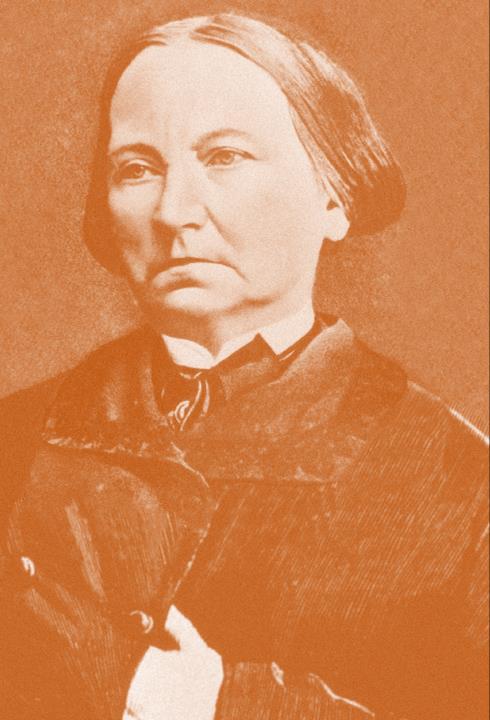
3 minute read
Concepción Arenal (Alba Casas and Abel Fáfula
Concepción Arenal
Alba Casas and Abel Fáfula
Advertisement
Hi, my name is Concepción Arenal. I was born on January 31st 1820 in Ferrol (A Coruña, Spain) and died on February 4th 1893 due to a chronic bronchitis in Vigo. I was a Spanish thinker, journalist, poet and drama author in literary realism. I was considered a pioneer in Spanish feminism. My father was a soldier who was imprisoned for his liberal ideas and died in jail in 1829, when I was only 9 years old. That year, I moved with my mother and my two sisters to Armano (Cantabria), to my grandmother’s house, where I received a strong religious education. Some months later, my sister Luisa passed away and after some years, with the help of my relative Antonio Tenreiro-Montenegro and Caveda (second count of Vigo), I moved to Madrid so as to study at a school for young ladies.
I always obtained very good marks, so when I grew up I was encouraged to keep on with my education, becoming the first woman in Spain to attend University. To do so, I was forced to dress as a man while attending classes. Later on, in 1848, I graduated in Law School at the Central University (nowadays the Complutense University of Madrid) and married Fernando García Carrasco, with whom I had three children. My preparation led me to be appointed inspector of women's prisons in 1864, becoming the first woman to receive the title of visitor of women's prisons, where I denounced the situation of women at prisons. During my birth, the reign of Fernando VII (1814-1833) took place, in which he tried to impose an absolutist government. Nevertheless, there were some liberal attempts to change the Spanish
politics, economy and society. The king died in 1833 and María Christina received the regency until 1840. In addition, the First Carlist War happened and I worked with the Red Cross helping the injured. When I got married in 1848, Narváez dictatorship began and when my husband died in 1857, Alfonso XII was born. In 1871 I was appointed Secretary General of the Red Cross in Madrid. The tram was inaugurated in Madrid and the new king, Amadeo I, arrived in Spain. At the time, women were considered inferior to men in intelligence and ability. Women could not vote, hold elective public office or attend colleges or universities; these rights were reserved to men. If we wanted divorce, we had to prove physical abuse or adultery. This injustice made me guide most of my efforts to fight for women's rights. My feminist ideas led me to write "The Woman of the Future", where I criticized the theories that defended the inferiority of women based on biological reasons. I also defended women's free access to any level of education. Also, in other works I exposed the difference in salaries between men and women.
I hated the view of women as wives and mothers. For this reason, I encouraged all women (single, married or widowed) to claim for their rights. Dignity does not depend on gender, and the right to have a job should be the same for every human being. I also collaborated closely in the newspaper Iberia, a liberal and progressive political newspaper. In addition, I collaborated in the Red Cross and in feminist groups and charitable organizations. In 1860, I published the essay "Charity and Philanthropy", for which I was awarded by the Academy of Moral and Political Sciences. I published the book hiding my true identity using the name of my son. The Academy discovered my falsification, but finally, for the merits of the work, I received the award. Moreover, “My Ode to Slavery” (1866) was awarded by the Abolitionist Society of Madrid and I was named Secretary General of the Red Cross in Madrid. As you can see, I managed to overcome many obstacles and difficulties in a male-chauvinist society and yet I was also recognized for some of my works. I wish the women to come will make greater achievements and progress in feminism in order to have a better life.
"Open schools and prisons will be closed"
SCAN ME AND LISTEN TO THIS TESTIMONY











